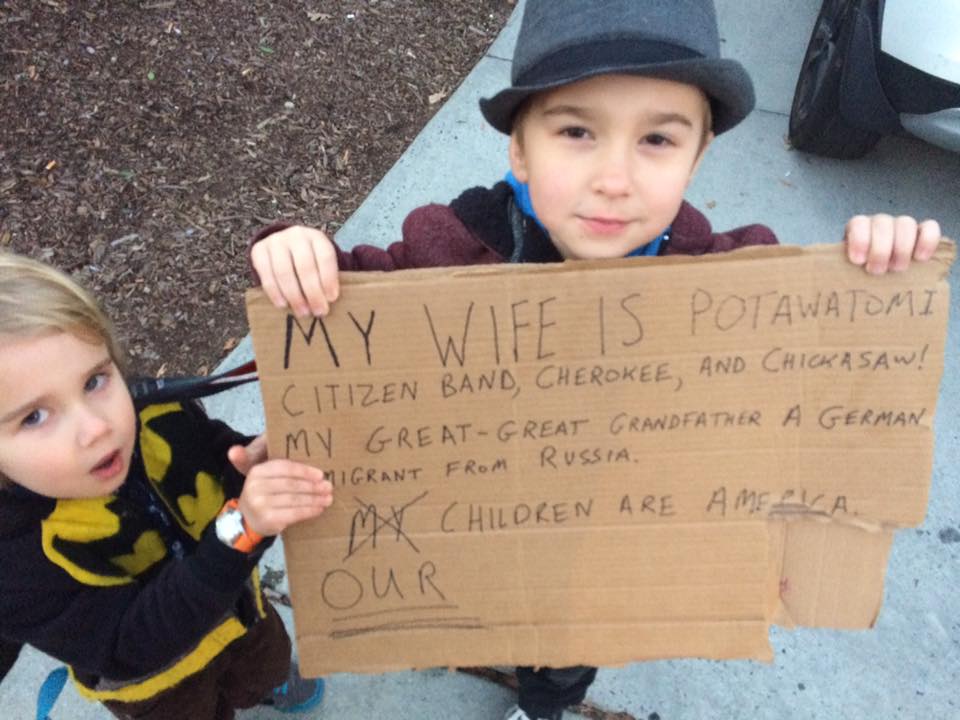Diffusion of Responsibility: simply put, when a task is placed before a group of people, there’s a strong tendency for each individual to assume someone else will take responsibility for it—so no one does. {psychology today}

Diffusion of responsibility is based on the phenomenon that if something urgent must be done in a situation, the more people there are present, the more likely someone else will assume that the other people will step up and take action. It usually ends with blame—“YOU should have done something!” “YOU should have known better.”
We are pretty good at this blaming game, especially in our political and religious circles. But blame is a dirty and vicious cycle, and I don’t believe it leads anywhere. As of last weekend, the DNA of the leadership in our country shifted, and along with it, a heightened awareness of what needs to be done in the future of our nation and in the future of the church. This must be handled without pointing fingers at everyone else who should be doing something but with a check in ourselves to pay attention to what WE are or aren’t doing.
Countering diffusion of responsibility is personally acting to take on the least of these, the othered, the outsiders, and calling them back in again. We’ve seen it this week, in a rising up to care for immigrants and refugees, for Native American brothers and sisters, for the earth.
To those who have been ignored, or who are now being singled out for who they are or what they stand for, there is a dire need for care and support. For the next four years, countering diffusion of responsibility doesn’t mean blaming republicans or democrats for what they did, but moving forward to make sure that what we do as individuals counters hatred, racism and neglect.
People thronged to Standing Rock throughout 2016, some who had never journeyed to North Dakota before, especially to live with native peoples for weeks or months on end. Instead of diffusing their responsibility, people showed up with support and encouragement, and a movement between native and non-native peoples began, one that continues to grow and challenge the world to care for the earth today.
But with every new member of Donald Trump’s cabinet, I am heartbroken again at the lack of care for the least of these—the economically downcast, people of color, immigrants and refugees, my LGBTQ brothers and sisters, women, and the working class.
And with every new person added to the target, something grows inside of me, a deep-seated realization that with the prayers I pray and the words I write, with the compassion I choose to stretch into every corner of my daily life, I answer a call.
Jesus didn’t say, “Democrats, care for the Muslims. Republicans, you handle the Native Americans.”
He said, with every breath that he breathed, that the way forward is with care and compassion, no matter what, toward whoever was in need.
Remember the tables that he overturned in the city? He wasn’t blaming. He was calling out a hideous diffusion of responsibility that had filled the house of prayer with thieves, and had ostracized the crippled and poor. He threw tables over to demand an end to the bickering, calling for justice to become the sole responsibility of the leaders again.
The Savior didn’t waste his moments blaming. He held up responsibility to the light and called people to walk in it, and that included a harsh reality: we’re all capable of debilitating or encouraging others through the things we say and do.
So what are we doing today? What is our fight, and what is coming out of us to make sure that the cycle of blame is broken?

I fight it when I write, when I teach my boys what immigration is, what a refugee is, what the word for “heart” is in Potawatomi, or why birds fly south for the winter. I will use the power of learning to fight, while my dear friends use their own creativity to engage the world, to bring justice, to create healing like my friend Suzanne does.
My best friend does it as she cares for kiddos in her art programs, and as she raises money for Preemptive Love Coalition through selling t-shirts.
And Rachel does it through her story, through sharing the power of slowing down and listening, especially to the ones who are nearest to us. Through active listening and engaging, we empower each other to act and believe in our own passions.
You do it when you make eye contact with a refugee in your city, when your write your Congressman a letter, when you recycle to care for the earth, when you sit down to coffee with someone from the other political party.
We’ve tasked our two boys with challenges for their lives, based on both their personalities and the things that make them happy: one makes the world more beautiful, and the other takes what is wrong and makes it right.
Both boys, in drastically different ways, are charged to take who they are and what they care about to create spaces that lift up others. And we pray that every day as they grow, they see with clear eyes who has need, and they choose to respond no matter how many others are around.
Last night they joined thousands at the airport in our city to welcome in refugees and immigrants. With a sign that said, “My wife is Potawatomi Citizen Band, Cherokee, and Chickasaw! My great-great grandfather a German immigrant from Russia. Our Children are America,” these two along with my husband broke the cycles of blame and diffusion.

Our youngest pictured Gotham City around him, himself as Batman, working to protect and provide for everyone in need. And my oldest, with every chant, knew that he was making space for love and creativity to come into the world.
Social media is a window through which we see everything, as ghastly as it sometimes is. And the last things we need to see are pointing fingers and lack of action through that window. To move past blame is to move forward to justice, to take whoever feels vulnerable and help them feel safe, to take uncared for places and make them beautiful again, and to take whatever it is that is wrong and make it right.
This is fighting diffusion of responsibility and ending blame.
This is reconciliation, and the way of Christ’s shalom.
And everything in us knows, we need it.











